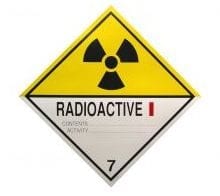A team of chemists has found that the element californium could change how the world stores radioactive waste and recycles fuel.
Using carefully choreographed experiments, the researchers found that californium had the ability to bond and separate other materials, in addition to being extremely resistant to radiation damage. According to Albrecht-Schmitt, Florida State professor and lead researcher on the project, the discoveries could help scientists build new storage containers for radioactive waste, as well as help separate radioactive fuel, thereby allowing it to be recycled. “We’re changing how people look at californium and how it can be used,” Albrecht-Schmitt said.The experiments were conducted at Florida State, but Albrecht-Schmitt worked with theorists and scientists from nine universities and institutes, including Oak Ridge National Laboratory which supplied the californium.
The element is found in very concentrated uranium deposits but is also produced at the Research Institute of Atomic Reactors in Russia and the Department of Energy’s Oak Ridge National Laboratory in the United States. The cost of the element, however, could be a limiting factor. The 5 mg of Californium used for the experiments cost $1.4 million (R15million).






